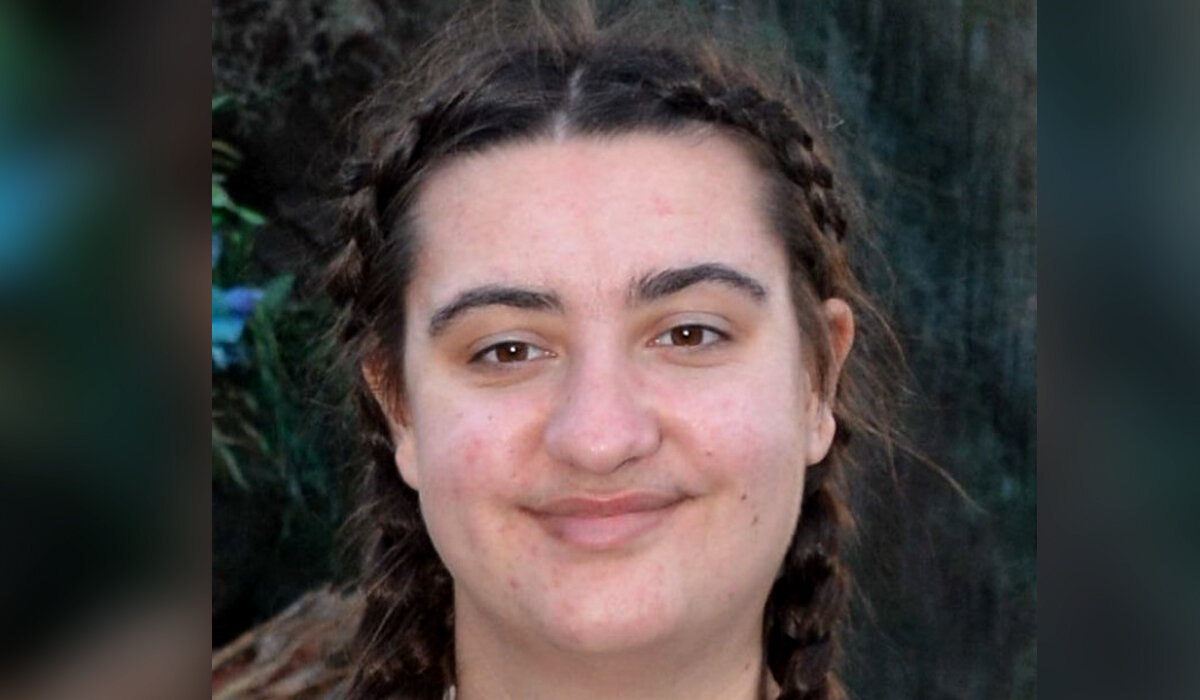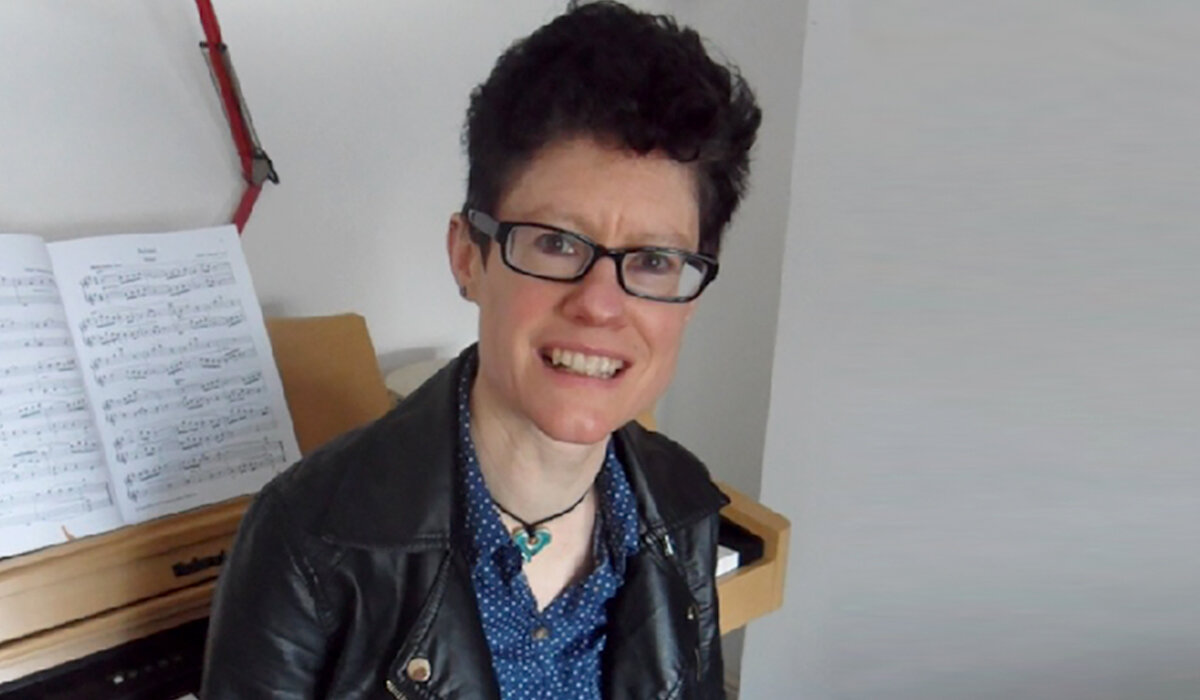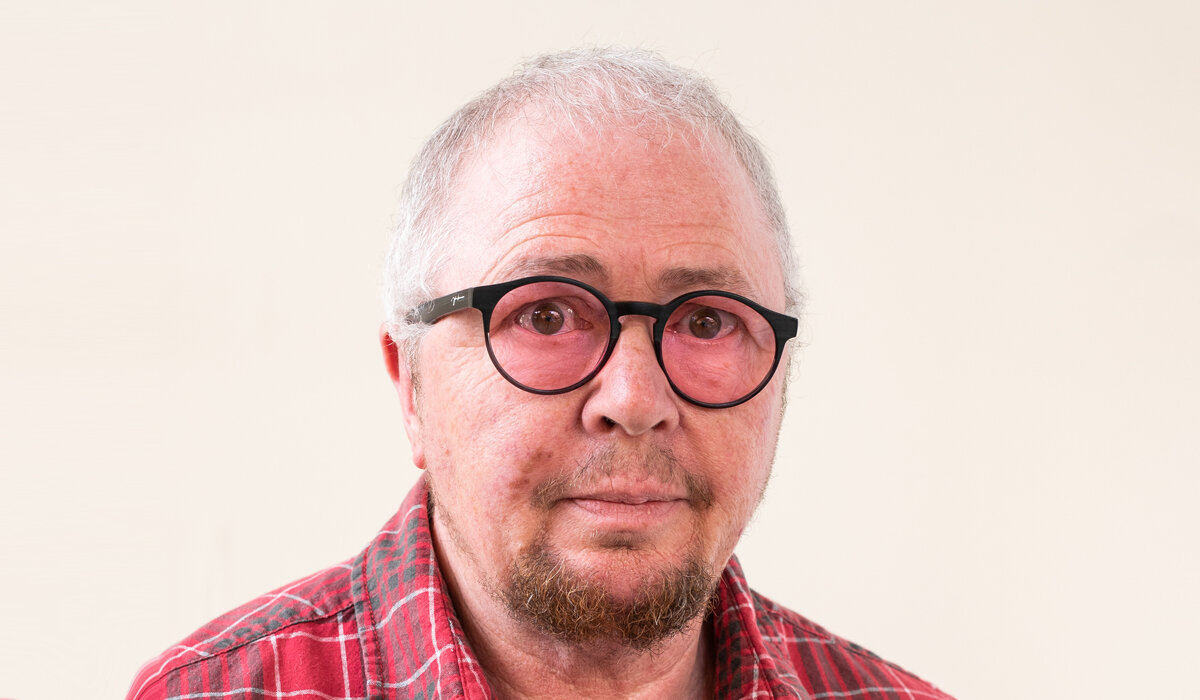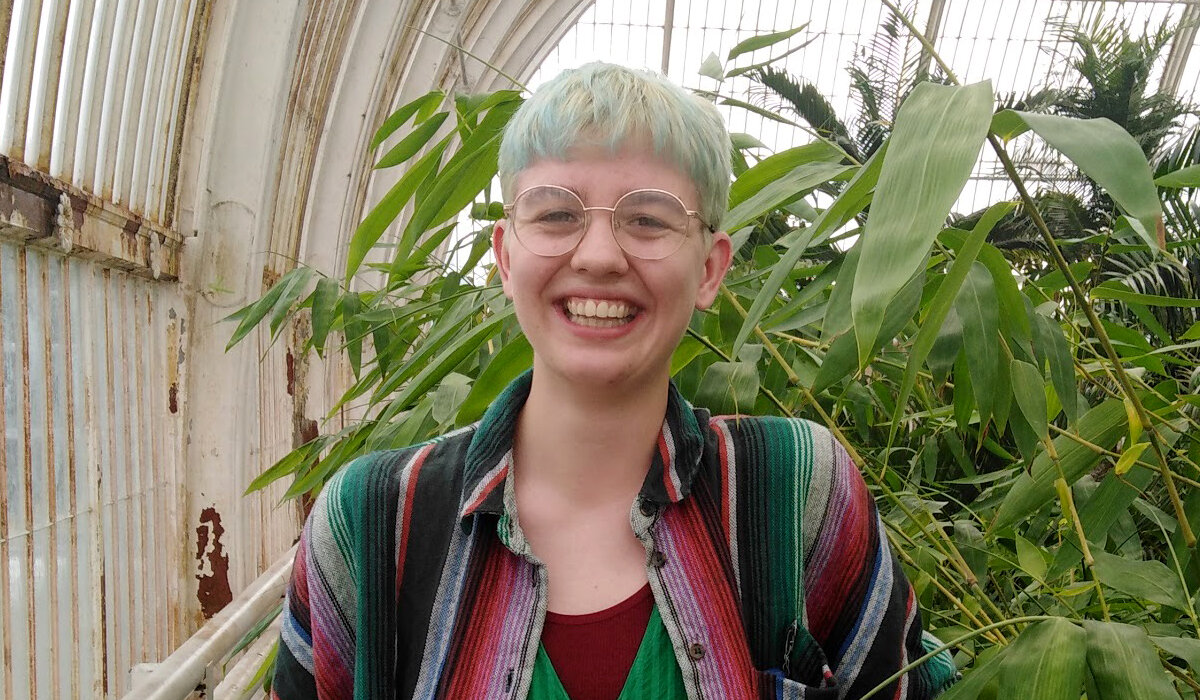
"As I grew up, I still didn't find boys that interesting, but I assumed it was because I was autistic."
Eva Gibbs
- on being an autistic member of the LGBTQ+ community
Celebrating Pride Month with...Eva Gibbs
In this Stories from the Spectrum feature, we heard from Eva Gibbs.
Meet Eva, a 24-year-old autistic woman from London. Eva shares her story about coming out as lesbian at university, her experiences at London Pride, and how we can create a society that works for LGBT+ autistic people.
One of the most common questions people in the LGBT+ community are asked is: “when did you know?”
Getting asked ‘The Question’ entertains me. I don’t have a date and time written in my diary. I didn’t get hit by a rainbow beam from the sky.
But, looking back, there were clues. When I was about seven, I watched two women kiss on television, and thought that women could only kiss other women in fiction. I also remember watching a documentary about autism and relationships. There was a scene where a group of young autistic people were asked about getting intimate. They all said that they never got those kinds of urges. So, I put two and two together and guessed that it must be an autism thing. I sadly accepted that I would never experience fireworks, or the urge to throw myself at someone.
More and more people are standing up to debunk the myth that autistic people are not sexually active, or can only date other people on the autistic spectrum. Amy Schumer, for example, has spoken openly about her husband being autistic. But, ten years ago, the view was very different. I started going to social groups for autistic people, and when I met up with my mum afterwards, she would often tell me that the other parents had asked her about setting up dates with their sons, thinking a diagnosis was enough in common.
As I grew up, I still didn’t find boys that interesting, but I assumed it was because I was autistic. I used to randomly tell guys at school that I fancied them, but my first, real crush wasn’t until years later.
"As I grew up, I still didn’t find boys that interesting, but I assumed it was because I was autistic."
I was around 19 when I realised that I was exclusively into girls. Coming out was not at all like I expected, quite the opposite in fact. I came out to my mum several times through little conversations. Each time she would tell me that she thought I might be “into everyone,” no matter their gender, or just give me a slight acknowledgement. When I was 21, I finally took a step that I felt would be difficult to reverse. I corrected someone and said “I’m looking for a girlfriend, not a boyfriend” while I was at university. This was the first time I had not presented as straight to a non-family member. Suddenly, girls stopped feeling comfortable with me hugging or touching them. It was as if those innocent gestures were now seen as sexual, despite me always being a lesbian. This experience was a setback, as I already found approaching women difficult.
I choose not to involve myself in any LGBT groups because, like lots of autistic people, I find socialising in groups hard. Large groups are overwhelming, as I often don’t get a chance to speak as I try and process the all the information. Getting lost in crowds and lots of bodies touching mine also makes huge events, like London Pride, difficult to take part in. I’ve been to London Pride twice. Once, I went on a date with someone and we were getting on so well until I saw a stall for people with disabilities and used it as a way of letting my date know that I was on the autism spectrum. She suddenly wanted to find her friends and spent about 20 minutes hiding in the toilets before one of her friends came out and told me that I shouldn’t have told her I was autistic and asked me to leave. The other time, I was working at Transport for London, and got to take home one of their Pride posters, that is now framed on my living room wall. I’ll probably be at Pride again this year, working on the Crossrail. I prefer to be there in a working capacity, rather than get lost in the crowds.
As of this moment in time, I identify as a lesbian. To me, ‘lesbian’ is a positive and powerful word, as I never again have to pretend to be interested in a gender that I am not.
If I could get one message out to someone reading this is it would be that everyone deserves to be loved, no matter how you identify, and it is possible to meet someone who is accepting. My girlfriend has never asked me to change and I would never ask her to change either. Autism can be a really isolating from my experience, so to have someone who gets you really makes a difference. I think that fear can come from a place of ignorance, so I would love to see events like Pride made more accessible, like a relaxed area being put in place and the staff trained to help autistic people when they need it. This way, autistic people can celebrate without feeling uncomfortable, and society can understand that autistic people share a lot of the same values, beliefs and experiences as everyone else.
Similar stories

"It's great that Pride events exist, as they help LGBTQ+ people see they are not alone."
Madge Woollard
- on celebrating Pride as an LGBTQ+ autistic person
Read more

"Listen to the individual, work together, and follow expert advice to support autistic people questioning their gender."
Wenn Lawson
- on supporting transgender autistic people and those exploring their gender identity
Read more

"I am very proud to be a queer person and a member of the community."
Sophie Gribben
- on celebrating Pride Month and being part of the LGBTQ+ community
Read more

The Spectrum magazine
Explore one of the UK's largest collections of autistic art, poetry, and prose. The Spectrum magazine is created by and for autistic people, and is available both online and in print.
Read the Spectrum





You are not alone
Join the community
Our online community is a place for autistic people and their families to meet like-minded people and share their experiences.
Join today